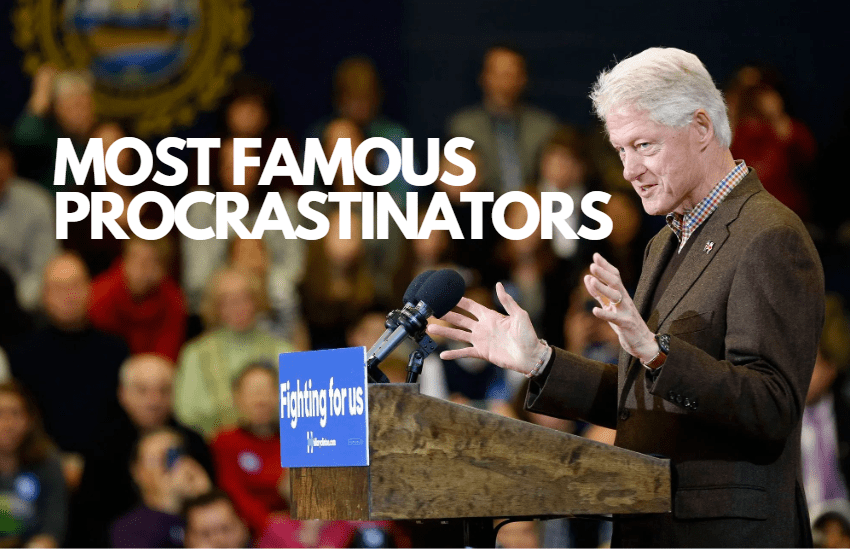Most people experience procrastination and lack of motivation at one point or another in their lives. For instance, according to the Global Workplace Study published in 2022, 50% of employees aren’t fully engaged at work and want to leave their jobs. Instead of employees being “fully engaged” at work, employees simply “come to work”. They are not necessarily disengaged but are not reaching their full potential or performing tasks to the best of their ability. It seems that people have to do things against their will by forcing themselves. Motivation comes and goes, therefore, discipline is the main key to seeking higher results and achieving your goals. To be disciplined, you should follow proven practices on how to do something you don’t want to do. These 15 tips can help you meet tasks or work deadlines and achieve great results at the finish line.
Here is the list of 15 tips on how to do something you don’t want to do:
- Start your day with the hardest tasks;
- Face the truth that it should be done;
- Focus on the end goal;
- Be familiar with the task;
- Split your task into smaller ones;
- Set the reward;
- Use Pomodoro timers;
- Set clear deadlines;
- Don’t cut yourself off from interacting with people;
- Make your task more interesting;
- Understand the root cause of your apathy;
- Use if-then planning;
- Bring innovation into your life;
- Eliminate distractions;
- Inform others.
Whether it is a difficult task, work, or responsibility, there are ways how to change your behavior and reduce stress related to strict deadlines. To understand better each of these 15 tips, an explanation of how to interpret every tip is presented below.
1. Start your day with the hardest tasks
Most people tend to have higher energy levels and increased mental focus at the beginning of work or process as well as in the morning. One unpublished study conducted with Emory University’s Diwas KC and Northwestern University’s Maryam Kouchaki (2016) shows the connection between performing easier tasks first and productivity through the doctors and patients who do not schedule a visit. Doctors first treated those patients who had milder ailments and problems. However, two problems arose here: patients with more severe problems are waiting longer, which is not good. Second, with each additional mild patient, the doctor becomes tired, so there is a risk that the doctor will be less effective before he starts working with more serious patients. This example was taken to emphasize that it is not good to start from the easiest tasks or work. Taking on challenging tasks at the start allows you to leverage your peak productivity hours
2. Face the truth that it should be done
Psychologists claim that completed work gives us energy for new things, and unfinished work disturbs and reduces the quality of life. According to the article “Can You Handle The Truth?” on the Psychology Today (2011) website, it takes courage to face the truth because it associates with anxiety and responsibility. If we accept our strengths and weaknesses, we can find a balance in our lives. Balance is worth seeking because only when we can live our best lives. Accepting the fact that the task should be done saves us time and helps us to find balance and solutions on how to reach our goals.
3. Focus on the end goal
It is a known fact that clear and specific goals help people to achieve better performance and higher results. Professional athletes, successful businessmen, scientists, and other high achievers set end goals. In the late 1960s, psychologists Edwin A. Locke and Gary P. Latham proposed a theory that focuses on the relationship between goal setting and task performance. Locke and Latham’s theory is a well-known motivational theory in the field of organizational psychology. The core idea behind Locke and Latham’s theory is that setting specific and challenging goals can significantly improve individual and group performance in various tasks. One study conducted in 1981 and presented in the Journal of Psychological Bulletin proves that 90 percent of the time, specific goals made it possible to achieve higher results. Clear and specific goals give a long-term vision and motivation to pursue them. Also, clear goals bring together all knowledge, help people control their time and energy resources, and allow people to reach their full potential and heights. If you focus on the end goal, you should be familiarized with the task.
4. Be familiar with the task
A simple way to do your task and work easier is to familiarize yourself with the task or work properly. Even the children have better results in a learning task after familiarization. According to the article published in the Irish Journal of Education (1970), sixty 4th, 5th, and 6th-grade children received relevant familiarization with components parts of a fictitious machine and the other 60 students did not receive it. The results showed that sixty relevant familiarized children were able to express themselves and answer the questions more freely. So, after familiarizing yourself with the task, make a plan on how to achieve the desired result, calculate how much time and other resources are needed to complete the task, and break this task into smaller ones.
5. Split your task into the smaller ones
All large tasks (projects) should be broken down into the smallest possible parts. Ones that only take a few minutes. For example, you can divide the preparation of a presentation into finding information, preparing an outline, creating slides, refining the design, and so on. You don’t have to do everything at once. By categorizing tasks, you can move forward step by step, even if you only have fifteen minutes to complete them. After completing even a small task, do not forget to celebrate your milestones.
6. Set the reward
After completing the task, you should reward yourself. One study published in European Economic Review (2014) reveals the power and limits of various self-rewarding items. This shows that ordinary items often work well as self-rewarding items. For instance, last week you went to the gym every day and now you’re going to treat yourself to a piece of cake (reward). Also, realize that you put effort into your life because you know you’ll be rewarded. For example, you work overtime because you want to leave work early the next day (reward) or you want to go on a trip (reward). According to the results of the study, self-help mentors generally recommend using “small rewards” that are enough to help motivate yourself, but it’s not so important to you that you go ahead and get them even if you do not achieve your goal.
7. Use Pomodoro timers
Try the Pomodoro Technique, which means you work for 25 minutes and then take a 5-minute break. This will help you not run away from work. After four Pomodoro Technique cycles, it’s time for a longer rest, which should take about 15-20 minutes. When the timer announces that 25 minutes have already passed, you need to put a cross next to the name of the task (if the task has been completed). If for some reason you did not complete the task – mark it with a line. Later, these markings will be useful when you want to know how much time this or that job took or when you plan the work for the next day and set clear deadlines.
8. Set a clear deadline
Setting a deadline date helps you to keep promises and prioritize your tasks or work. The clear deadlines should be realistic and not too late. Mark this deadline date in your work calendar. If possible (depending on the project), tell the people around you about it – friends and relatives. Your ego needs to be involved in the successful implementation of the project. When you communicate a deadline to others, you put your credibility on the line, which is a great motivation.
9. Don’t cut yourself off from interacting with people
Engage in communication as much as possible, but also reconsider whether you are communicating with the right people. For example, toxic people will not help get out of lack of motivation but being with supportive, encouraging relatives or friends or healthcare providers is extremely important. Each of us knows someone who inspires us. Such people live with enthusiasm, are positive, and are ready to act. Talk to this person about goals or opportunities. Therefore, be open to ideas, look for inspiring people around, and you won’t even notice how the reluctance to act will simply disappear.
10. Make your task more interesting
Of course, it’s not easy for everyone to find a field that makes them so happy and engaging, and sometimes we have to do things that we don’t like. According to the article written by Ayelet Fishbach and Kaitlin Woolley and published in the Journal of Annual Review of Organizational Psychology and Organizational Behavior (2022), it was found that students spent time in the library according to whether it was interesting for students to analyze the study material, and not according to the importance of work. So, the most enjoyable form of doing something should be sought. Learning or doing something will be easier if you do it with friends. Or maybe it will be easier for you to work on the outlines if there is music playing in the background? Just find a way to enjoy the process as well as the results.
11. Understand the root cause of your apathy
Apathy refers to a lack of interest, motivation, enthusiasm, or concern about things that can be complex, as it can arise from various psychological, social, or physiological factors. Understanding the root causes of apathy would typically evoke emotions or motivate actions. Knowledge and understanding the reasons behind your apathy allow you to know positive outcomes and see the purpose behind actions.
12. Use if-then planning
If you find your task boring or feel a lack of enthusiasm, If-then planning might help. It helps create a structured plan that consists of a particular situational cue (the if part) to a specific response or action (the then part). Preparing for obstacles and defining actionable steps help individuals improve their self-regulation.
13. Bring innovation into your life
New activities change the brain’s neurochemistry. Even though it seems like taking on something new will make you feel overwhelmed, and drained, it’s usually the opposite. Try to make small changes and observe the changes in your mood during their implementation – maybe you will start a new test, read a magazine, or try to get up half an hour earlier and exercise.
14. Eliminate distractions
Find a quiet and comfortable environment to work on the task. For instance, instead of procrastinating on homework, minimize distractions like social media, television, or noise and start doing it. Social media is not meant to distract you. Try not to go to your phone or computer every 15 minutes. If other people distract you from your task or work, inform them. Discipline yourself and only do it when you have free time, otherwise, when you find something new, interesting, and engaging, the expectation of small distractions will turn into unfinished work.
15. Inform others
Let your colleagues and other people around you know when you are free and when it is best not to disturb you. If people around you know that you are working on important tasks at a certain time, they will try not to disturb you or ask questions or otherwise engage in conversation when you are free.
Should You Always Do What You Don’t Want?
The answer is no. You should not always do what you don’t want. Find the balance between avoiding work you dislike and fulfilling necessary responsibilities. If you want to avoid doing the task or work, do not force yourself and delegate it to another person. Be considerate of others’ feelings and be willing to share responsibilities. At the same time, advocate for yourself when necessary, expressing your concerns about specific tasks to find the best possible solution for everyone. While it’s okay to minimize your exposure to unpleasant tasks, some things might be unavoidable and essential to achieve your goals or maintain your personal or professional responsibilities
Situations When You Can Avoid Unpleasant Tasks
Let’s take a look at some of the situations when you can avoid unpleasant tasks:
- Emotional well-being: Sometimes, you may need to avoid certain unpleasant tasks if they cause significant emotional stress, burnout, or anxiety. Take care of your mental health and avoid unnecessary stress to regain focus and recharge yourself.
- Medical condition: If you are diagnosed with Attention Deficit Hyperactivity Disorder (ADHD) or other physical or mental health disorders, and feel unwell, it is a crucial factor to take care of yourself and sometimes avoid the most energy-consuming or challenging tasks, responsibilities, and work.
- Prioritization: Sometimes we have obligations to our family, friends, and job and we must prioritize essential tasks over less critical ones.
- Personal Boundaries: If a task goes against your values, beliefs, or boundaries, it’s reasonable to avoid it. Do not force yourself to do what is beyond your moral compass.
- Safety Concerns: Avoid any tasks that pose a threat to your physical or mental safety. Taking unnecessary risks is not advisable.
The most important things are keeping your values, ensuring safety, and taking care of your health. These things are the basis when you can avoid a certain unpleasant task or work.
Need Motivation? We Can Help!
We all have goals and aspirations and try to fulfill them, but suddenly all desires take and disappear. Motivation is the energy that drives us forward, encouraging us to act. When it decreases, indifference prevails, interest decreases, and everything around becomes dull, gray, and withered. This feeling affects our life in the long run: we move further and further away from the starting point where we tried to achieve our goals and realize our dreams. The longer this state lasts, the more it affects us. Why does motivation fade and how to get it back? The Virtue Map productivity tool can help here. According to the Virtue Map reviews, the Virtue Map productivity tool helps individuals become more productive, focused, and efficient in their tasks. This anti-procrastination tool helps you stay on track and reduce time wasted on distractions, and break tasks into smaller ones, leading to higher productivity and accomplishing more tasks in less time.




